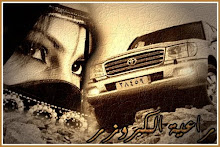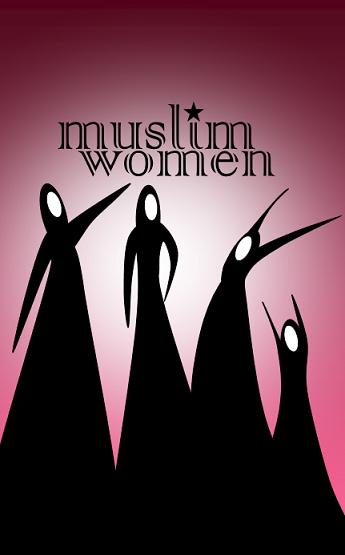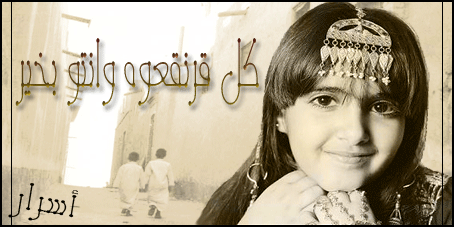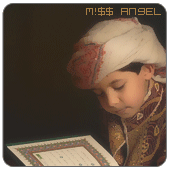
As a tradition in the UAE, the setting of the wedding date marks
the beginning of the bride’s preparation for her wedding.
Although the groom is also put through a series of preparations, the bride’s preparations are naturally more elaborate and time consuming.
In preparation for her wedding, she is anointed with all sorts of traditional
oils and perfumes from head to toe.
Her body is rubbed with cleansing and conditioning oils and creams,
the hands and feet are decorated with henna and the hair is washed
with extracts of amber and jasmine.
She is fed only the best of foods and her girlfriends prepare the best
dishes which they share with her. Traditionally, she is not seen for forty
days except for family members as she rests at home in preparation for her
wedding day.
Fine pieces of jewelry, perfumes, silk materials, and other necessary items
are presented to her by the groom, from which she creates her elaborate
trousseau called Addahbia.

The festivities usually take about one week before the wedding night.
During that week, traditional music, continuous singing, and dancing
take place reflecting the joy shared by the bride’s and the groom’s family. Nowadays, although most weddings are celebrated in less than one week,
they are just as elaborate and ceremonial, if not more.
A few days before the wedding night is the henna night or Laylat Al Henna
which is a very special night for the bride since it is a ladies’ night only.
On this night, the bride’s hands and feet are decorated with henna,
which is a dark brown paste made from the henna plant. When left on the
skin for some time, the henna leaves a dark red stain.

The henna night is a time for all the bride’s sisters, female family members,
and girlfriends to get together and sing and dance.
All female family members and guests also decorate their hands with henna.
The henna is not used for decorative purposes only but it serves also as a
hair and skin conditioner as well as a medicament for some wounds,
when mixed with special ingredients.
Another traditional element of the UAE customs is the Arabian Kohl or
eyeliner. The bride, as well as many other UAE women, like to line their
eyes on almost all occasions. Famous for their beautiful, large, and black
eyes,
the UAE women have used the Arabian kohl for many years.

Taken from a black stone known as Al Athmed which is brought from
Saudi Arabia, the kohl is prepared through different methods and stages.
First, the stone is heated until it disintegrates and then it is processed in
water and Arabian coffee or sometimes henna leaves (depending on the
method used) and it is left for forty days to process. Finally, it is ground
into
a fine powder and it is ready to be used as an eyeliner for the eyes.
Used by women of all ages, the Arabian eyeliner is also known to be
useful
for the eyes.
After her eyes are lined, her hair is perfumed and her hands and feet
are decorated with henna, the bride is ready for her wedding night.
The back-to-back feasts and celebrations involve both men and women
who usually celebrate separately. Although different areas of the country
may have slightly differences in their celebrations and customs, the general traditions are the same throughout the country most of which are still
adhered to.
In 1992, under the directives of His Highness Sheikh Zayed Bin
Sultan Al Nahyan, a Marriage Fund has been set up in order
to limit over-spending on weddings and celebrations.
The fund was aimed at encouraging the Emirati men to marry Emirati
women, assisting in covering the expenses of both the wedding
and the setting-up of a family, increasing the birth rate,
and discouraging men from marrying foreigners.
The Fund provides between Dh 60,000 to Dh 70,000 depending
on certain criteria to young UAE nationals. In tandem with this,
the government has launched a campaign aimed at persuading
UAE fathers to accept lower dowries.
It has also built special wedding halls where receptions can take
place without incurring the expenses associated with expensive
hotel receptions.
Under the directives and instructions from President His Highness
Sheikh Zayed Bin Sultan Al Nahyan to curb soaring wedding expenses
which burden the youth, the UAE’s Cabinet, on the 29th of September,
1997 approved a letter from the Justice and Islamic Affairs Minister
outlining a draft law defining dowries, the money paid by a groom
to his bride, under Islamic Law, at Dh 20,000,
divorce compensation at Dh 30,000, and wedding parties should not
exceed one day.

Nowadays the average cost of a wedding in the UAE now stands
at Dh300,000, according to a leading exhibition company.
The survey carried out at this year's Bride Show Dubai shows that
43 per cent of respondents who were planning a wedding
proposed to spend more than Dh100,000 on their nuptials with
12 per cent planning to shell out Dh500,000 or more.

As a tradition in the UAE, the setting of the wedding date marks the beginning of the bride’s preparation for her wedding. Although the groom is also put through a series of preparations, the bride’s preparations are naturally more elaborate and time consuming. In preparation for her wedding, she is anointed with all sorts of traditional oils and perfumes from head to toe. Her body is rubbed with cleansing and conditioning oils and creams, the hands and feet are decorated with henna and the hair is washed with extracts of amber and jasmine. She is fed only the best of foods and her girlfriends prepare the best dishes which they share with her. Traditionally, she is not seen for forty days except for family members as she rests at home in preparation for her wedding day. Fine pieces of jewelry, perfumes, silk materials, and other necessary items are presented to her by the groom, from which she creates her elaborate trousseau called Addahbia.
The festivities usually take about one week before the wedding night. During that week, traditional music, continuous singing, and dancing take place reflecting the joy shared by the bride’s and the groom’s family. Nowadays, although most weddings are celebrated in less than one week, they are just as elaborate and ceremonial, if not more. A few days before the wedding night is the henna night or Laylat Al Henna which is a very special night for the bride since it is a ladies’ night only. On this night, the bride’s hands and feet are decorated with henna, which is a dark brown paste made from the henna plant. When left on the skin for some time, the henna leaves a dark red stain.
The henna night is a time for all the bride’s sisters, female family members, and girlfriends to get together and sing and dance. All female family members and guests also decorate their hands with henna. The henna is not used for decorative purposes only but it serves also as a hair and skin conditioner as well as a medicament for some wounds, when mixed with special ingredients. Another traditional element of the UAE customs is the Arabian Kohl or eyeliner. The bride, as well as many other UAE women, like to line their eyes on almost all occasions. Famous for their beautiful, large, and black eyes, the UAE women have used the Arabian kohl for many years. |

Taken from a black stone known as Al Athmed which is brought from Saudi Arabia, the kohl is prepared through different methods and stages. First, the stone is heated until it disintegrates and then it is processed in water and Arabian coffee or sometimes henna leaves (depending on the method used) and it is left for forty days to process. Finally, it is ground into a fine powder and it is ready to be used as an eyeliner for the eyes. Used by women of all ages, the Arabian eyeliner is also known to be useful for the eyes. After her eyes are lined, her hair is perfumed and her hands and feet are decorated with henna, the bride is ready for her wedding night. The back-to-back feasts and celebrations involve both men and women who usually celebrate separately. Although different areas of the country may have slightly differences in their celebrations and customs, the general traditions are the same throughout the country most of which are still adhered to. In 1992, under the directives of His Highness Sheikh Zayed Bin Sultan Al Nahyan, a Marriage Fund has been set up in order to limit over-spending on weddings and celebrations. The fund was aimed at encouraging the Emirati men to marry Emirati women, assisting in covering the expenses of both the wedding and the setting-up of a family, increasing the birth rate, and discouraging men from marrying foreigners. The Fund provides between Dh 60,000 to Dh 70,000 depending on certain criteria to young UAE nationals. In tandem with this, the government has launched a campaign aimed at persuading UAE fathers to accept lower dowries. It has also built special wedding halls where receptions can take place without incurring the expenses associated with expensive hotel receptions. Under the directives and instructions from President His Highness Sheikh Zayed Bin Sultan Al Nahyan to curb soaring wedding expenses which burden the youth, the UAE’s Cabinet, on the 29th of September, 1997 approved a letter from the Justice and Islamic Affairs Minister outlining a draft law defining dowries, the money paid by a groom to his bride, under Islamic Law, at Dh 20,000, divorce compensation at Dh 30,000, and wedding parties should not exceed one day.
Nowadays the average cost of a wedding in the UAE now stands at Dh300,000, according to a leading exhibition company. The survey carried out at this year's Bride Show Dubai shows that 43 per cent of respondents who were planning a wedding proposed to spend more than Dh100,000 on their nuptials with 12 per cent planning to shell out Dh500,000 or more. |
























7 comments:
Hmm, very interesting!!
I didn't do ANY of those traditions (would have done the henna!!) because we got married outside of UAE... None of our family were present (although my husband's mother did want us to fly to Egypt but I didn't have a passport at the time!!) but it was a luvly small celebration, alhamdulillah <3
mmmmmm similar to egyptian traditions! I LOVE the idea of henna although id only have it on my bak and my chest, hehehehehehe
That's right the traditions differ from country to country. What i love so much in emaraati local weddings is that almost 80% of locals wanna have a luxury wedding, kept in some quite expansive hotels or special places destinated to weddings or parties.
Companies they will take care of everything,offering to the bride & groom family less stress in planning out the wedding and arrangements.
I WANT A UAE WEDDINNGGGG hehehee
Very nice and informative blog Arab Mania :)
The luxury wedding is nice for those who can afford it, however i think it puts a lot of pressure on people who can't afford it since it is becoming the norm.
I am going to get to go to my first local wedding (god willing) this october. Actually I went to this first part already - the final step - the big party before the bride goes to live with her husband will be this october - I am really excited but I don't have a clue what to wear!
Are you from the UAE yourself?
ahhh sounds so cool... i hate how in Canada they just do mixed weddings.... :( it would be nice if it was only ladies
Lovely blog. Travelling has always been my passion and dream especially fashion. Although I am a big fan of the UAE, I feel out-dated when reading interesting posts like this.
–
cheap calls to uae
Post a Comment